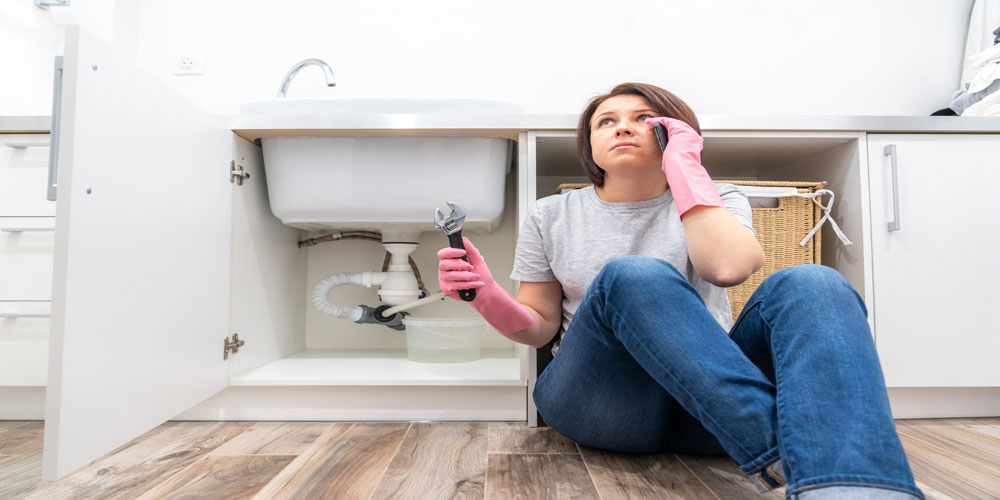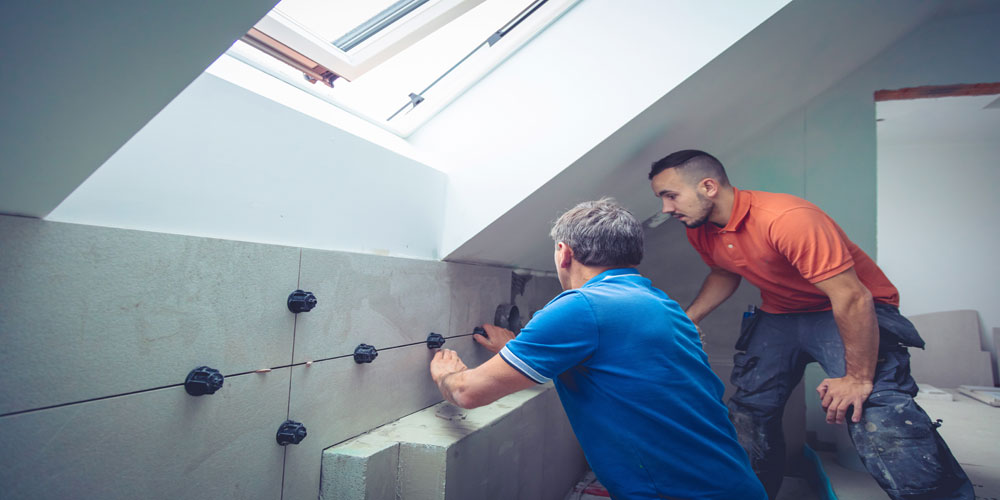Common DIY Jobs to Avoid
The experts at Toolstation spoke to tradespeople to get their thoughts on which jobs around the home should be left to the professionals. According to the tradespeople, the “most common botched jobs” they get called out to fix include leaks, plumbing in appliances as well as decorating.
More than 65 percent of Britons surveyed by Toolstation said that they have attempted to fix something at home before hiring a professional.
The leading motivation to try a job before calling a pro is to cut costs, according to 70 percent of the people surveyed and a further 74 percent of tradespeople also agreed.
Fixing leaks
Jamie, owner of Billabong Plumbing & Gas Services, said: “When money is tight, people will often resort to attempting plumbing jobs themselves to save money, but it can cost more in the long run. They then have to pay for my time to correct the problem, replacement parts and the cost to repair the damage, which is a lot more expensive than paying me to do the job in the first place.”
Leaks should be sorted out as soon as possible because they can cause other more “expensive” issues down the line.
Plumbing in appliances
Jamie continued: “The most common jobs people attempt include fitting their radiators, plumbing in taps, and installing electric showers. But when these jobs go wrong it often results in leaks and water damage, which is when I get a panicked call from a customer asking for help.”
Sorting out leaks and water damage can be dangerous for homeowners if they don’t know what they’re doing, so it’s best to call in the professionals to begin with.
Changing taps
A spokesperson from Toolstation said: “If you’ve spent £100 on new taps and make a mistake fitting them yourself, you’re going to have to pay around another £110 to £130 for a professional to fix the problem, and that’s if the issue is just with the taps.”
According to the experts, attempting to fix the issue at home could mean double the cost compared to calling for help in the first instance. Common mistakes when replacing a tap involve tightening fittings too much, not using the right tools and not sealing threads.
Painting and decorating
Ollie, who is a plasterer, said: “I get called out for botched plastering jobs and sometimes this adds another day of work on top to have to re-prep the area and remove anything that they have done already. This adds roughly £150 to £200 to the job.”
30 percent of the trade experts who spoke to Toolstation stated that they fix mistakes at least monthly, sometimes even more frequently. Half of the trade experts said they often turn down jobs due to the state of the job at hand.
How common is it for people to attempt the job themselves and why?
Trying to fix a problem yourself before hiring a professional is more common than you might think. When we asked 500 people if they or someone else in their household has ever attempted to fix something in the home before or instead of hiring a professional, 68% said yes.
Attempting to sort the issue yourself first appears to be more common with the older age groups, as more than three-quarters of respondents aged 55-64 answered yes, compared to 69% of 25-34 year olds.
For over two-thirds of us, saving money is the main reason we’ll attempt the job ourselves. Saving time was the next biggest reason at 37%. Just under a third of Brits said they do it for enjoyment, and a quarter do it because ‘I have the skills and tools to do so’. However, for almost a fifth of us, the main reason is impatience.
Toolstation spoke to over 300 trade experts to get their opinions on the matter. 74% of them agreed that the most common reason for a botched job is clients trying to cut costs. Our trade experts also see inexperience as a reason for botches occurring, with 36% of our experts believing this is the cause of the mistakes.
When asked if they’d ever had to call a professional to finish a DIY job after attempting it first, a third of respondents said yes. But it’s 55-64 year olds that need the most help, with 37% of them asking for help to fix a job, compared to just a quarter of 35 – 44 year olds.





